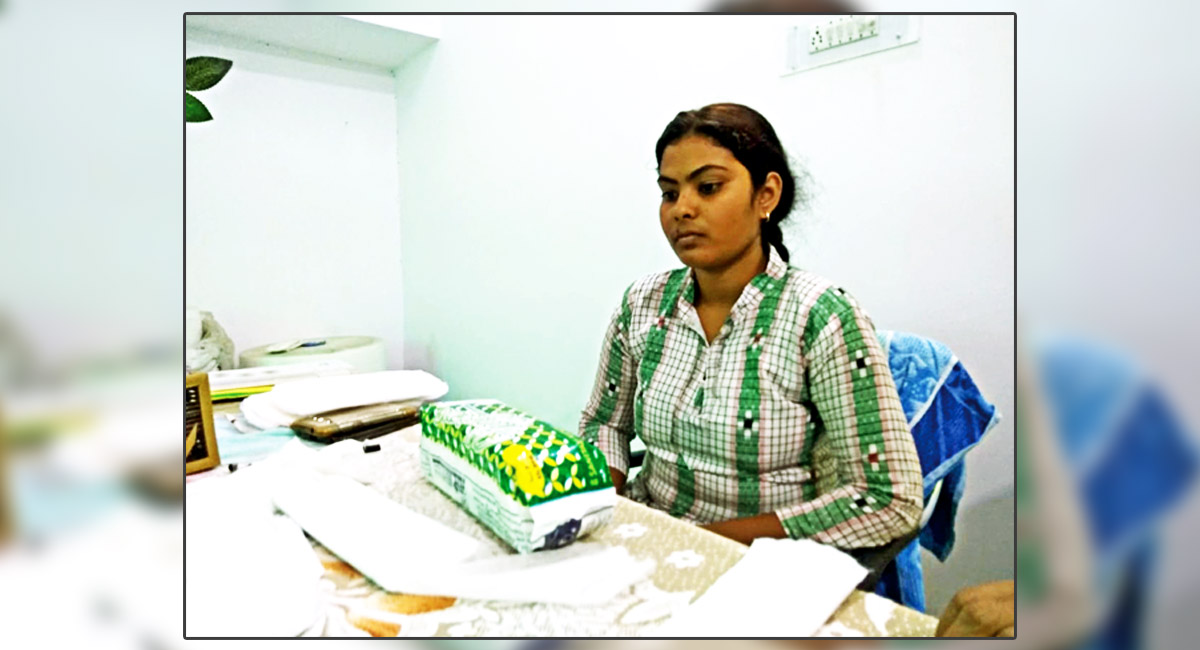The Akshay Kumar starrer Padman released in 2016 may have made Arunachalam Muruganatham, the man from Tamil Nadu who started a sanitary napkin revolution, a household name in the country. But not many are aware of Odisha’s own ‘Padwoman’ who has for long been working among rural women to make them aware of the importance of sanitary napkin use. Ahead of World Menstrual Hygiene Day May 28, Orissa POST talked to Payal Patel, who has been instrumental in promoting menstrual hygiene in the state’s rural areas.
The menstrual cycle may not be an issue for women in urban areas, but in rural areas, it is still considered a curse by many, says Payal. An advocate of menstrual hygiene, Payal has set up a sanitary pad manufacturing unit at Barpan in Jharsuguda district and made pads available to the women at an affordable price.
Payal, who belongs to Rangiatikra village in Kirmira, says people in her village followed a weird custom when girls reached puberty. She says, “Menstruating girls were made to sleep in cowsheds or in a separate room for seven days. Nobody was allowed to come into contact with them and they were not allowed into the house until their period was over. They were treated like untouchables. The plight of these village girls disturbed me, and I wanted to change society’s approach to menstruation. I made it a mission to promote menstrual hygiene and end the taboos and stigma attached to menstruation.”

However, Payal’s journey was not an easy one. She lost her father Prasant Patel in the year 2014. Being the eldest child, she took on the responsibility of her family and became the sole bread earner. Recollecting those difficult days, she says, “I was in my Plus III first year when my father died after battling cancer for five years. I engaged myself in farming activities in the daytime to feed my family and studied at night to clear BSc. Despite the tough conditions, I did not feel low and did my best to change the lifestyle of village women. After completing BSc, I joined a skill development institute, Rural Self Employment Training Institute run by TRL Kosaraki Limited and SBI, to get trained in sanitary pad manufacturing. I also went to Mumbai to learn the advanced technology of making low-cost pads.”
Finally, Payal set up her unit May 28, 2017, which is observed as World Menstrual Hygiene Day. She took a loan of Rs 8 lakh under PMEGP while a relative lent her Rs 12 lakh. Presently, she sells her sanitary pads under the brand name ‘Hygiene.’ A packet of 8 pads costs Rs 20. By setting up the unit, she was also able to offer employment opportunities to local women. “When these women decided to join my unit Prasant Enterprises, their family members were against it. They changed their opinion after I made them understand the need for sanitary napkins. They use cloth usually which leads to hygiene issues,” says Payal, who manufactures 40,000 pads per month.
She continues: “In the rural areas, women are not aware of the importance of proper hygiene. My challenge was to change the mindset of rural women who are still using cloth instead of napkins, due to social stigma. To overcome this, I conducted several awareness camps in the villages. I explained the benefits of sanitary napkins. Initially, when I spoke to a few women in my village about menstrual hygiene, they were reluctant to use the napkins but after six months of setting up of my unit, the women started using my product and felt good. I am yet to achieve 100 per cent success in my mission, but I have managed to change the mindset of some women and made them think about how important menstrual hygiene is. Use of unhygienic cloth can lead to serious infections.”
Apart from manufacturing and marketing, she visits villages, all by herself, to create awareness among rural women. “Even though I have been at the receiving end of lewd comments sometimes, I never stopped visiting villages. In the last two years, I have visited 25 villages where women had no idea about napkins. I conducted hygiene camps with an aim to create awareness among women on adopting hygienic practices. Besides, I offered them tips on how to minimise reproductive tract infections. A few women who use sanitary pads didn’t know how to dispose them. They simply threw them into the waterbodies which was not a good practice. Rural women generally shy away from discussing things related to menstruation. Before discussing napkins, I discuss several other issues with them to make them feel comfortable,” says Payal, a recipient of the Ojoswini award 2019 and Prerna Award 2018.
Payal’s mother Sabita played a key role in helping her achieve her goal. “My mother was my constant guide who stood by me no matter how busy she was,” says Payal. “Whatever I am today, it is because of her. I would also like to attribute my success to my father who always wanted me to be good and do good for society.”
RASHMI REKHA DAS, OP







































